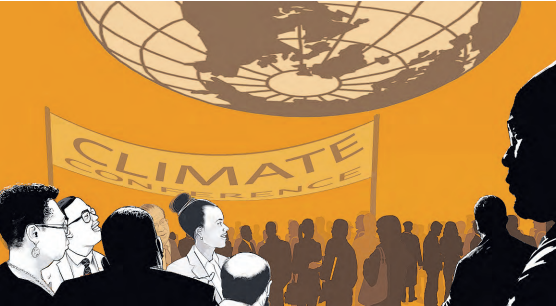
Chronic anxiety associated with extreme weather events is mounting, even as obsession with politics diverts attention from pressing national issues.
One such pressing challenge is food insecurity.
The scarcity will get worse, against the backdrop of undecided OctoberDecember short rains.
This would mean two failed crop seasons this year.
Sorting out food insecurity ranks low in the priority of county and national governments.
Instead, the latest episode of public participation was about whether to extend the tenure of elected leaders, from the constitutional five to the ill-conceived wish to hold elections every seven years.
The extension, if bulldozed through, would give elected eaters two more years to exploit the hungry masses.
No one seems to be talking of a strategy to ease climate change-induced perennial food shortages.
The debate on the tenure of elected representatives followed haphazard public debate on impeachment of the deputy president.
The tussle over the impeachment of Rigathi Gachagua and swearing-in of DP-designate Kithure Kindiki, has been elevated above other matters of compelling public interest.
Two extreme events are recorded this year: one was the April-May floods.
Another is the impeachment of DP Rigathi Gachagua and the ensuing stalemate in the Executive.
The devastating floods, six months ago, swept away huge swaths of agricultural fields, destroying food crops in its wake.
The effects of the ruin is showing in empty food stores. Yet no one is talking about this.
The trending issue is not food shortages and soaring prices of commodities, but the stalemate in the Executive.
Politicians are enjoining the public in sorting out their differences, rather than addressing pressing public concerns.
Meanwhile, government officials will be going for another jamboree in Baku, Azerbaijan, for the 29th session of the Conference of Parties on climate change.
Unpredictable rainfall patterns is a consequence of climate change.
The long rains season – March-May – came in sporadic torrents, with destructive flooding.
The weather could not support effective food projection.
Waterlogged lands lost their productive potential.
Crops were swept down, as homesteads were destroyed.
The hope of a make-good season is falling apart.
Short rains are too scanty to support crop production.
Stunted crops are what peasants have for their labour.
The weeds are healthier than maize plants.
Hope is falling apart, as despair grows among the peasantry.
The brutality echoes Dickensian paradox — of politicians enjoying their season of plenty, and the masses suffering hunger.
Charles Dickens speaks to us in A Tale of Two Cities:
“It was the best of times, it was the worst of times, it was the age of wisdom, it was the age of foolishness, it was the epoch of belief, it was the epoch of incredulity, it was the season of Light, it was the season of Darkness, it was the spring of hope, it was the winter of despair, we had everything before us, we had nothing before us, we were all going direct to Heaven, we were all going direct the other way—in short, the period was so far like the present period, that some of its noisiest authorities insisted on its being received, for good or for evil, in the superlative degree of comparison only.”
The conferencing world will be in Eastern Europe, next month, to discuss previous discussions on how to respond to the devastating consequences of climate change.
A decade after the Paris Agreement, countries have formulated climate change policies, laws, regulations and structures for mitigation and adaptation.
But adaptation gaps are still widening.
From November 11 to 22, countries will be discussing actions towards achieving the collective and global climate change goals as agreed in Paris.
The Paris accord was adopted during the United Nations Climate Change Conference (COP21) in 2015.
There is emphasis on what should be done.
But, instead, state parties are preoccupied with conferences.
The only financed angle to climate change are capacity building workshops, and risk and vulnerability assessments.
Fat cats discussing ‘risks’ and ‘vulnerabilities’ are largely out of touch with elevated food insecurity.
Not much, if any, targeted local actions are visible.
The climate crisis remains a fad for demanding global accountability, without local reciprocity.
Climate action
ranks lowly in the hierarchy of national priorities.






![[PHOTOS] Guardian Angel bus catches fire in Kikuyu](/_next/image?url=https%3A%2F%2Fcdn.radioafrica.digital%2Fimage%2F2025%2F04%2F58287f0a-f201-4a78-87f0-6f147ad8ba8a.jpg&w=3840&q=100)




